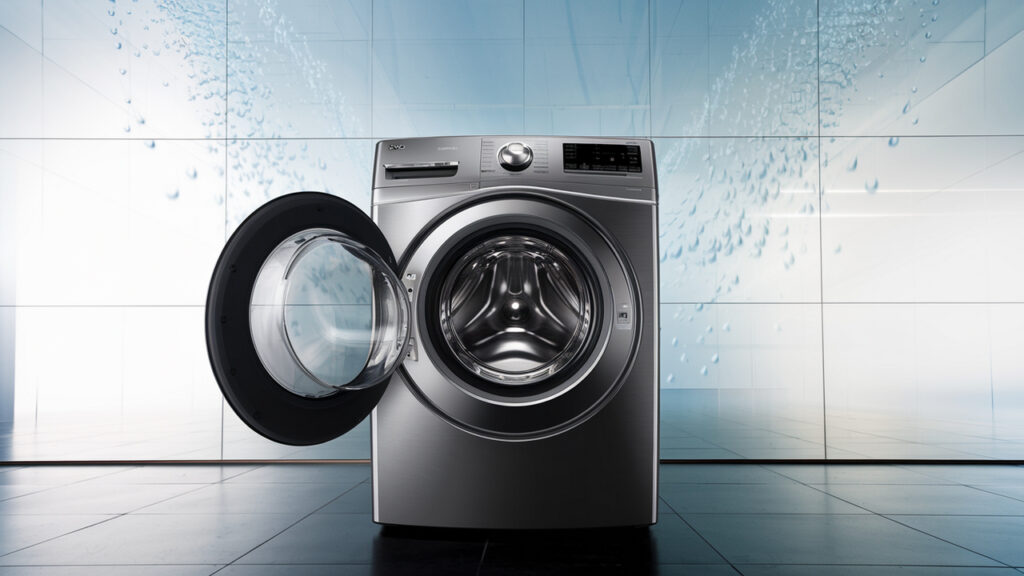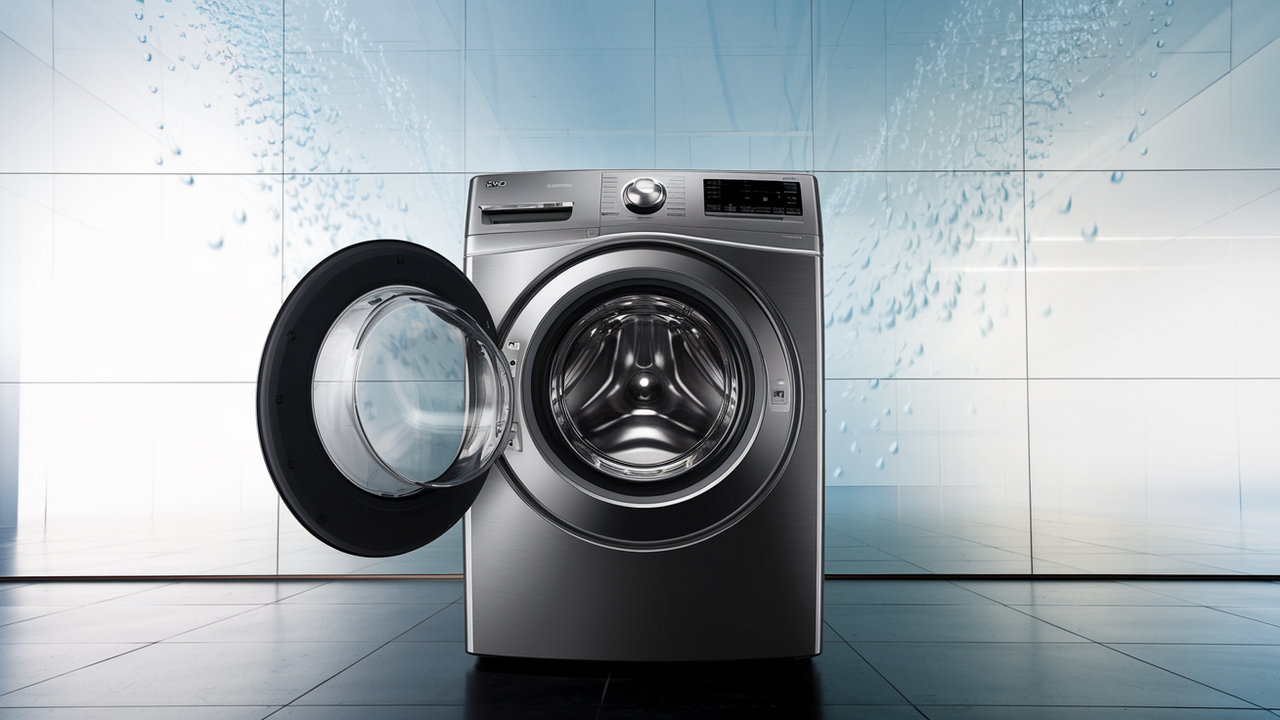Top Load Washers That Use the Least Water (Eco-Friendly Picks)
If you’re like me, you’ve probably asked yourself: “Why does my washer use so much water for just a few clothes?”
Well, you’re not alone — and you’re in the right place.
In this blog, I’ll break down the top load washers that use the least water, explain how they save you money, and help you pick the best one for your needs.
Trust me, switching to a water-efficient washer is one of the smartest upgrades you can make this year.

Table of Contents
Why Water Efficiency Matters
Older top load washers with agitators can use up to 45 gallons per load.
Newer high-efficiency models? Only 13 to 20 gallons.
That’s a huge difference — especially if you’re doing laundry multiple times a week like I am.
Using less water means:
- Lower utility bills
- Less strain on your water heater
- Reduced environmental impact
Top Picks: Top Load Washers That Use the Least Water
1. LG WT7300CW – 5.0 cu. ft. High-Efficiency Top Load Washer
- Estimated Water Usage: 13 gallons per load
- Why I Like It: Huge capacity, quiet motor, and TurboWash3D™ makes cold water washing ultra effective.
- Bonus: Wi-Fi enabled, ENERGY STAR® certified
2. Samsung WA50R5400AV – 5.0 cu. ft. Smart Top Load Washer
- Estimated Water Usage: 13 gallons per load
- Why I Like It: Active WaterJet feature is perfect for pre-treating stains. Plus, it’s one of the quietest washers I’ve owned.
- Bonus: ENERGY STAR® certified
3. Maytag MVW7230HW – 5.2 cu. ft. Smart Top Load Washer
- Estimated Water Usage: 13 gallons per load
- Why I Like It: Extra Power button destroys tough stains even with less water.
- Bonus: Remote control via smartphone app
4. GE GTW840CSNWS – 5.2 cu. ft. Top Load Washer
- Estimated Water Usage: Around 13 gallons per load
- Why I Like It: SmartDispense™ tech knows exactly how much detergent and water your load needs.
- Bonus: Built-in Wi-Fi and Alexa compatible
5. Whirlpool WTW7120HW – 5.3 cu. ft. Smart Top Load Washer
- Estimated Water Usage: Approx. 13 gallons per load
- Why I Like It: Love the Load & Go™ feature — I don’t have to refill detergent every time.
- Bonus: App-controlled and super user-friendly
Comparison Table: Top Load Washers That Use the Least Water
| Model | Capacity | Water Use (Approx.) | Smart Features |
|---|---|---|---|
| LG WT7300CW | 5.0 cu. ft. | 13 gal/load | Yes (Wi-Fi) |
| Samsung WA50R5400AV | 5.0 cu. ft. | 13 gal/load | Yes (SmartThings App) |
| Maytag MVW7230HW | 5.2 cu. ft. | 13 gal/load | Yes |
| GE GTW840CSNWS | 5.2 cu. ft. | 13 gal/load | Yes (Alexa) |
| Whirlpool WTW7120HW | 5.3 cu. ft. | 13 gal/load | Yes |
What Makes These Washers So Water-Efficient?
These aren’t your grandma’s washing machines. Here’s how they keep water usage low:
- Impeller Technology: Instead of bulky agitators, these washers use low-profile discs that gently swirl clothes using fewer gallons.
- Load Sensing: The washer automatically adjusts water levels based on the amount of clothes — no waste.
- High-Efficiency Rinse: Spray rinse cycles clean thoroughly while conserving water.
Tips to Use Even Less Water with These Washers
- Always wash full loads — that’s when HE washers are most efficient.
- Use HE detergents only — too many suds = more rinse cycles = more water.
- Keep your washer clean — gunk buildup can interfere with water-sensing tech.
Why You Should Get a Washer That Saves Water
Choosing one of the top load washers that use the least water is one of those rare upgrades where you save money and help the planet at the same time.
If you wash several times a week, your water and electric bill will thank you — and your clothes will too.
Out of all the models I’ve tested, I’d say:
- Go with LG WT7300CW if you want quiet, tech-savvy, and water-efficient
- Pick Maytag MVW7230HW if you have heavy-duty laundry
- Choose Samsung WA50R5400AV if you want quick cycles and great stain removal
Whichever you go with, you’ll be using less water and getting cleaner clothes — that’s what I call a win-win.
You Don’t Have to Sacrifice Cleaning Power
One of the biggest myths I used to believe was that less water = less clean. But with today’s washers, that’s simply not true.
Machines like the GE GTW840CSNWS and LG WT7300CW are designed with optimized wash motions and precision detergent delivery, meaning you get better cleaning results with less water.
Great for Homes on Septic Systems or with Water Restrictions
If you live in a rural area with a septic tank or a city with water usage limits, a water-efficient washer is a must.
Using a high-efficiency washer can help you stay compliant and avoid overloading your septic system — all while reducing your environmental impact.
High-Efficiency Washers Pair Perfectly with Cold Water Washing
Water-efficient machines often perform just as well with cold water, especially when paired with cold-optimized detergents.
That means you’re not only saving water — you’re also cutting back on energy used to heat the water.
It’s an easy double win for your wallet.
Even Large Families Can Save Big
I know families that do 5 or more loads per week, and with a traditional washer, that could mean over 200 extra gallons of water every week.
Upgrading to a water-saving model like the Whirlpool WTW7120HW makes a big dent in those numbers — without slowing down your laundry schedule.
You’ll Feel the Difference in Your Monthly Bills
I personally saw a drop in my water bill after switching to a high-efficiency model — and I wasn’t even trying to save money at first.
When you combine low water usage, shorter drying times from better spin speeds, and smart detergent use, it really adds up over the months.
It’s one of those changes you’ll never regret.


5 thoughts on “Top Load Washers That Use the Least Water (Eco-Friendly Picks)”